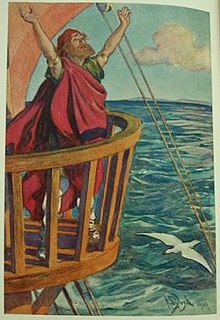Related Research Articles
Pop music is a genre of popular music that originated in its modern form during the mid-1950s in the United States and the United Kingdom. The terms popular music and pop music are often used interchangeably, although the former describes all music that is popular and includes many disparate styles. During the 1950s and 1960s, pop music encompassed rock and roll and the youth-oriented styles it influenced. Rock and pop music remained roughly synonymous until the late 1960s, after which pop became associated with music that was more commercial, ephemeral, and accessible.

Janet Damita Jo Jackson is an American singer, songwriter, actress, and dancer. She is noted for her innovative, socially conscious and sexually provocative records, as well as elaborate stage shows. Her sound and choreography became a catalyst in the growth of MTV, enabling her to rise to prominence while breaking gender and racial barriers in the process. Lyrical content which focused on social issues set her reputation as a role model for youth.

Trainspotting is a 1996 British black comedy-drama film directed by Danny Boyle and starring Ewan McGregor, Ewen Bremner, Jonny Lee Miller, Kevin McKidd, Robert Carlyle, and Kelly Macdonald in her debut. Based on the 1993 novel of the same title by Irvine Welsh, the film was released in the United Kingdom on 23 February 1996.

Madonna Louise Ciccone is an American singer, songwriter, and actress. She has influenced various other artists and has often been referred to as the "Queen of Pop". Madonna is noted for her continual reinvention and versatility in music production, songwriting, and visual presentation. She has pushed the boundaries of artistic expression in mainstream music, while maintaining control over every aspect of her career. Her works, which incorporate social, political, sexual, and religious themes, have generated both controversy and critical acclaim. As a globalized figure, Madonna is also noted for her cultural impact throughout the 20th and 21st centuries. She has her own academic subdiscipline devoted to her named Madonna studies. Scholarly reviews and literature works on her made Madonna one of the most "well-documented figures of the modern age".
This is a list of notable events in music that took place in the year 1988.

Music journalism is media criticism and reporting about music topics, including popular music, classical music, and traditional music. Journalists began writing about music in the eighteenth century, providing commentary on what is now regarded as classical music. In the 1960s, music journalism began more prominently covering popular music like rock and pop after the breakthrough of The Beatles. With the rise of the internet in the 2000s, music criticism developed an increasingly large online presence with music bloggers, aspiring music critics, and established critics supplementing print media online. Music journalism today includes reviews of songs, albums and live concerts, profiles of recording artists, and reporting of artist news and music events.

Robert Thomas Christgau is an American music journalist and essayist. Among the most well-known, revered, and influential music critics, he began his career in the late 1960s as one of the earliest professional rock critics and later became an early proponent of musical movements such as hip hop, riot grrrl, and the import of African popular music in the West. Christgau spent 37 years as the chief music critic and senior editor for The Village Voice, during which time he created and oversaw the annual Pazz & Jop critics poll. He has also covered popular music for Esquire, Creem, Newsday, Playboy, Rolling Stone, Billboard, NPR, Blender, and MSN Music, and was a visiting arts teacher at New York University. CNN senior writer Jamie Allen has called Christgau "the E. F. Hutton of the music world – when he talks, people listen."

Spin was an American music magazine founded in 1985 by publisher Bob Guccione, Jr. Now owned by Next Management Partners, the magazine is an online publication since it stopped issuing a print edition in 2012. Spin releases accolades and year-end lists in the categories of Artists of the Year, Single of the Year, and Album of the Year.

Madoc, also spelled Madog, ab Owain Gwynedd was, according to folklore, a Welsh prince who sailed to America in 1170, over three hundred years before Christopher Columbus's voyage in 1492.
Pop rock is a rock music genre with a greater emphasis on professional songwriting and recording craft, and less emphasis on attitude. Originating in the late 1950s as an alternative to normal rock and roll, early pop rock was influenced by the beat, arrangements, and original style of rock and roll. It may be viewed as a distinct genre field rather than music that overlaps with pop and rock. The detractors of pop rock often deride it as a slick, commercial product and less authentic than rock music.

Sain, in full – Sain (Recordiau) Cyf. is a Welsh record label, which took part in the Welsh folk revival.
This article is about the particular significance of the year 1935 to Wales and its people.

This is a detailed discography for American rock and roll, country, and gospel singer-songwriter Jerry Lee Lewis. One of the pioneers of rockabilly, Lewis has recorded over 40 albums in a career spanning seven decades. Lewis is a versatile artist, and has recorded songs in multiple genres. Lewis, in 1986, was one of the first inductees into the Rock and Roll Hall of Fame, and, as of 2021, is the last surviving rock and roll pioneer of Sun Records Some of his best known songs are "Great Balls of Fire", "Whole Lotta Shakin' Goin' On", and "High School Confidential". His album, Live at the Star Club, Hamburg, is widely considered one of the greatest live concert albums ever. In his lengthy career in music, Lewis has had 30 songs reach the top ten on the "Billboard Country-and-Western" chart. Lewis is regarded as one of the greatest and most influential pianists of the rock and roll era, and was ranked number 24 on Rolling Stone magazine's list of the "100 Greatest Artists of All Time".
When describing popular music artists, honorific nicknames are used, most often in the media or by fans, to indicate the significance of an artist, and are often religious, familial, or royal and aristocratic titles, used metaphorically. Honorific nicknames were used in classical music in Europe even in the early nineteenth century, with figures such as Mozart being called "The father of modern music" and Bach "The father of modern piano music". They were also particularly prominent in African-American culture in the post-Civil War era, perhaps as a means of conferring status that had been negated by slavery, and as a result entered early jazz and blues music, including figures such as Duke Ellington and Count Basie.
An auteur is an artist with a distinctive approach, usually a film director whose filmmaking control is so unbounded but personal that the director is likened to the "author" of the film, which thus manifests the director's unique style or thematic focus. As an unnamed value, auteurism originated in French film criticism of the late 1940s, and derives from the critical approach of André Bazin and Alexandre Astruc, whereas American critic Andrew Sarris in 1962 called it auteur theory. Yet such first appeared in French during 1955 when director François Truffaut termed it policy of the authors, and interpreted the films of some directors, like Alfred Hitchcock, as a body revealing recurring themes and preoccupations.
Post-punk is a broad genre of rock music that emerged in the late 1970s as musicians departed from the raw simplicity and traditionalism of punk rock, instead adopting a variety of avant-garde sensibilities and non-rock influences. Inspired by punk's energy and DIY ethic but determined to break from rock cliches, artists experimented with styles like funk, electronic music, jazz, and dance music; the production techniques of dub and disco; and ideas from art and politics, including critical theory, modernist art, cinema and literature. These communities produced independent record labels, visual art, multimedia performances and fanzines.
Art pop is a loosely defined style of pop music influenced by pop art's integration of high and low culture, and which emphasizes the manipulation of signs, style, and gesture over personal expression. Art pop artists may be inspired by postmodern approaches or art theories as well as other forms of art, such as fashion, fine art, cinema, and avant-garde literature. They may deviate from traditional pop audiences and rock music conventions, instead exploring ideas such as pop's status as commercial art, notions of artifice and the self, and questions of historical authenticity.
Experimental pop is pop music that cannot be categorized within traditional musical boundaries or which attempts to push elements of existing popular forms into new areas. It may incorporate experimental techniques such as musique concrète, aleatoric music, or eclecticism into pop contexts. Often, the compositional process involves the use of electronic production effects to manipulate sounds and arrangements, and the composer may draw the listener's attention specifically with both timbre and tonality, though not always simultaneously.
Progressive pop is pop music that attempts to break with the genre's standard formula, or an offshoot of the progressive rock genre that was commonly heard on AM radio in the 1970s and 1980s. It was originally termed for the early progressive rock of the 1960s. Some stylistic features of progressive pop include hooks and earworms, unorthodox or colorful instrumentation, changes in key and rhythm, experiments with larger forms, and unexpected, disruptive, or ironic treatments of past conventions.
References
- 1 2 Laurie Stras (2010). She's So Fine: Reflections on Whiteness, Femininity, Adolescence and Class in 1960s Music. Ashgate Publishing, Ltd. p. 172. ISBN 978-1-4094-0051-6 . Retrieved 8 September 2014.
- ↑ Sara Cohen; Robert Knifton; Marion Leonard; Les Roberts (27 August 2014). Sites of Popular Music Heritage: Memories, Histories, Places. Routledge. p. 70. ISBN 978-1-134-10318-8 . Retrieved 4 May 2016.
- 1 2 "Building New Business Strategies for the Music Industry in Wales" (PDF). Bangor University. 2010. Retrieved 23 April 2017.